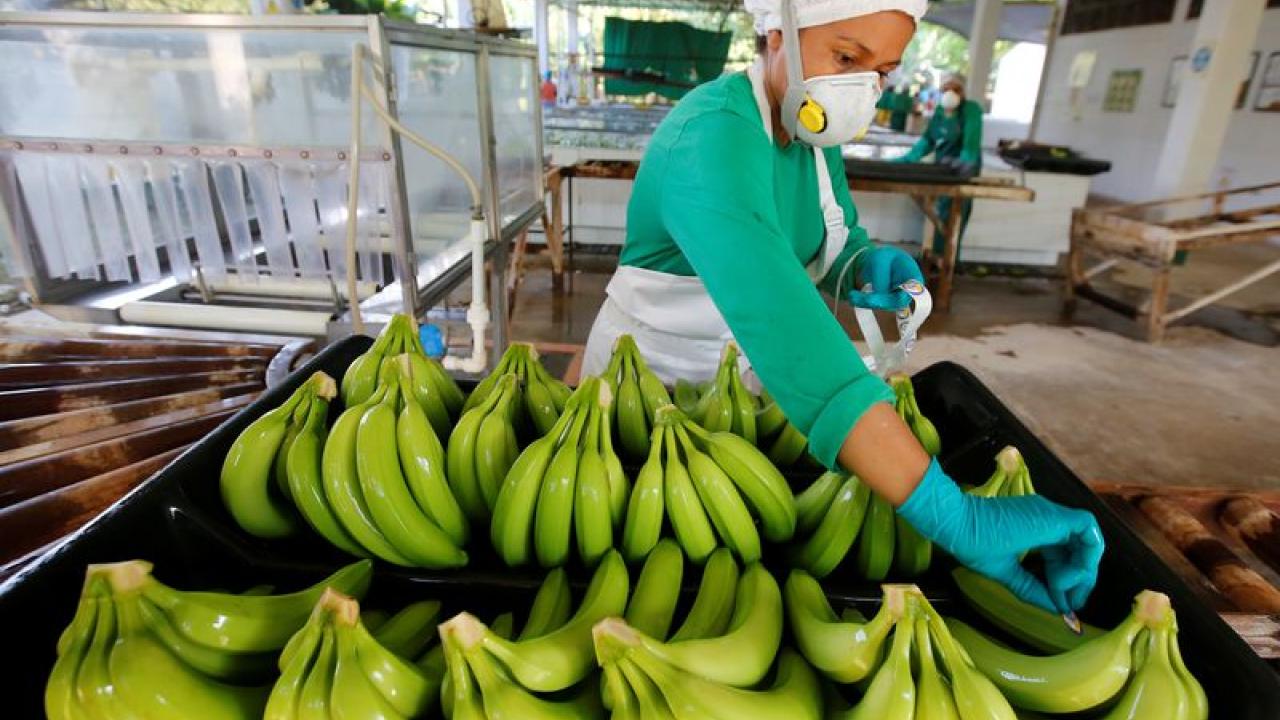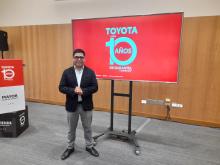
The Comprehensive Economic Partnership Agreement was signed this Thursday. The next step is for the document to comply with the internal procedures of each country. In Colombia it must go through the Congress of the Republic and, subsequently, be reviewed by the Constitutional Court.
Germán Umaña, Minister of Commerce, Industry and Tourism of Colombia, and Thani bin Ahmed Al Zeyoudi, Minister of State for Foreign Trade of the United Arab Emirates, signed a Comprehensive Economic Partnership Agreement (CEPA) this Thursday. , which they negotiated for two years.
According to the Colombian Ministry of Commerce, this is the first agreement that the coffee-growing nation has signed with Arab countries, “which are markets with a high level of income and rapid growth, and that offer opportunities in different areas for Colombia.”
After the signing of the Comprehensive Economic Partnership Agreement, the document will comply with the internal procedures of each country. In the case of Colombia, it goes to the consideration of Congress and, subsequently, to review by the Constitutional Court.
During the broadcast of the signing of the agreement, President Gustavo Petro and the President of the United Arab Emirates, Sheikh Mohamed Bin Zayed Al Nahyan, spoke about the importance of joining ties that promote union between countries and working on the transition towards an economy decarbonized through the commercialization of products.
“You (Arab Emirates) and we know that oil will end its life as a commodity in the world economy. Both countries depend on oil to this day. We have to move towards decarbonized worlds.”
HOW WAS THE AGREEMENT ACHIEVED?
During the process, according to Mincomercio, the negotiating team carried out respective and permanent consultations with the productive sectors and related entities on the topics of interest in the negotiation.
“We celebrate the signing of this agreement, which is in line with the objectives that we promote from the Government and in line with our foreign trade, reindustrialization and tourism policies. "The United Arab Emirates is an important ally, not only in attracting sustainable foreign investment, but also in our commitment to the diversification of our exportable offer, with emphasis on the creation of related energy sources with the aim of counteracting climate change," said Minister Umaña Mendoza.
Thani bin Ahmed Al Zeyoudi, Minister of State for Foreign Trade of the United Arab Emirates, assured that “our Comprehensive Economic Partnership Agreement with Colombia, the fourth largest economy in South America, is an exciting step forward in our agenda. foreign trade. “It opens up opportunities in a vibrant, high-growth nation to our exporters and investors, and provides an important bridge to the heart of South America.”
WHAT DOES THE AGREEMENT INCLUDE?
The agreement includes 19 chapters, among which are: access to goods markets, sanitary and phytosanitary measures, rules of origin, trade defense, SMEs, technical barriers to trade, economic cooperation, trade facilitation, services, digital trade, medium environment and sustainable development and responsible tourism.
When the agreement comes into force, 85% of Colombian products that enter that market will do so without tariffs.
WHAT COLOMBIAN PRODUCTS WOULD ENTER THE UNITED ARAB EMIRATES WITHOUT TARIFFS?
Food: coffee and its preparations, fruits and vegetables and its preparations, confectionery, beef, chicken, dairy products, cocoa and chocolates, some cookies and juices.
Clothing and accessories: clothing, leather goods, footwear, watches.
Others: synthetic fibers, flowers, paper manufactures, precious stones, tools, wooden manufactures, plastic furniture, fertilizers and agrochemicals, soaps, and medical devices, among others.
According to Mincomercio, there are also raw materials and capital goods, “which will make it easier for Colombian companies to access this type of goods and help them be more competitive.”
Another 13% of Colombian products that enter the United Arab Emirates will have a five-year tariff reduction schedule. Among these products are: sweet cookies, waffles, medicines, ceramic products, machines and appliances, among others.
WHAT WILL BE THE PERCENTAGE FOR PRODUCTS ENTERING FROM THE UNITED ARAB EMIRATES TO COLOMBIA?
In the case of Emirati products, as soon as the agreement comes into force, 63% will enter Colombia without tariffs.
The remaining 37%, Mincomercio explained, will have reduction schedules of up to 12 years and maintains the price band mechanism mainly for oils and sugar.
WHAT ARE THE SECTORS WITH THE MOST OPPORTUNITIES?
The greatest opportunities are in the manufacturing and agroindustrial sectors, since the United Arab Emirates imports products from the world's agricultural and food sectors an annual average of US$19 billion.
In 2023, Colombia sold non-mining goods to the United Arab Emirates for US$34.3 million. Among the products that Colombia exports to that market, in addition to gold, are coffee, flowers, fruits (such as mangoes and mangosteens, passion fruit), Hass avocado, sweets, beef, among others.
In 2023, trade between the two countries, that is, exports plus imports, reached US$329 million, and the agreement is expected to boost this exchange.
Colombia, for its part, buys from the United Arab Emirates plastics in primary forms and their manufactures, glass, lids and plugs for bottles and containers, centrifugal pumps, devices for filtering water and parts for electrical transformers, among others.










